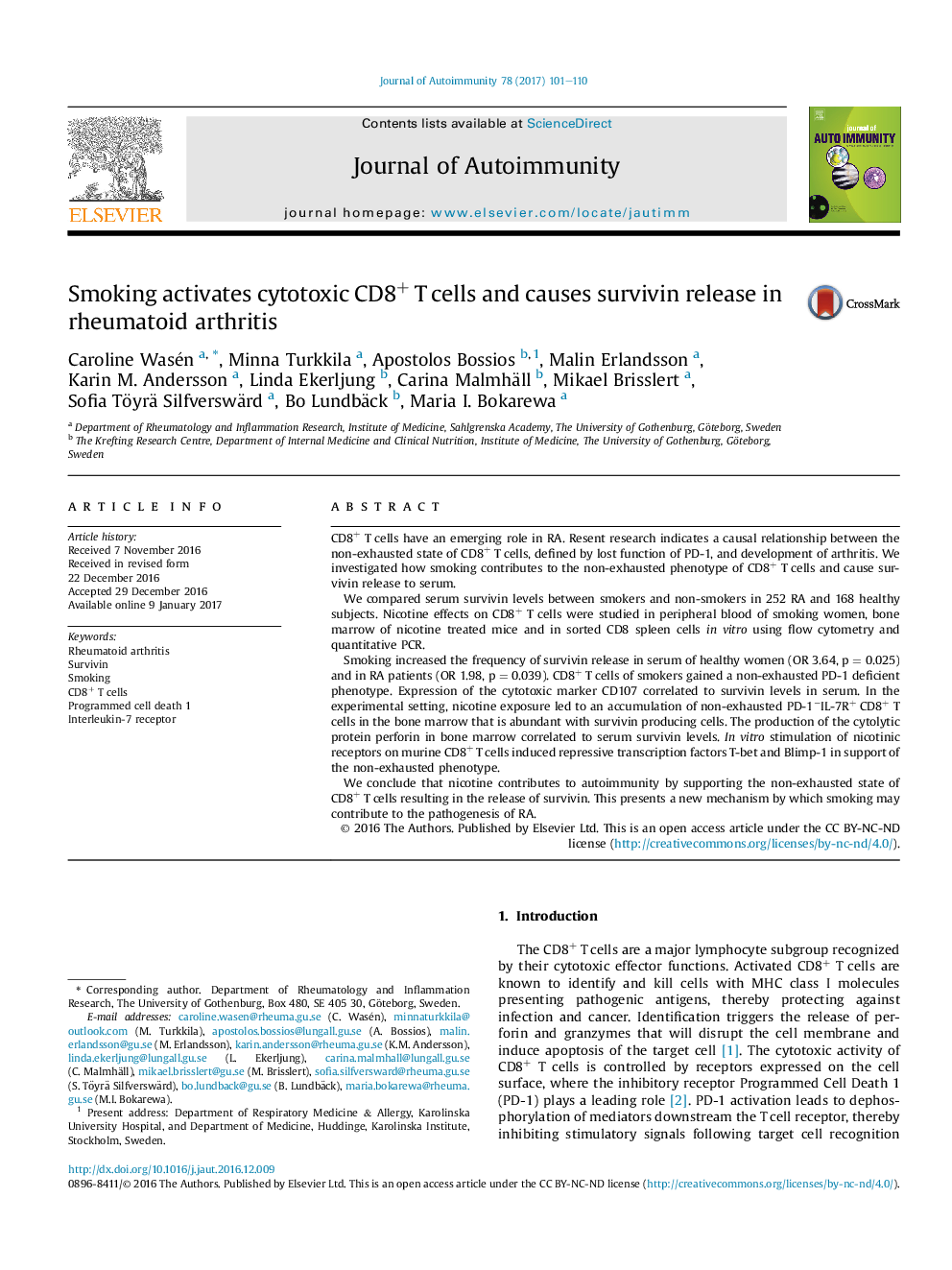| Article ID | Journal | Published Year | Pages | File Type |
|---|---|---|---|---|
| 5667863 | Journal of Autoimmunity | 2017 | 10 Pages |
â¢Smoking induce formation of non-exhausted CD8+ cells and survivin release in humans.â¢Release of survivin correlate with markers for CD8 cytotoxicity in human and mice.â¢Nicotine induced transcriptional signature of non-exhausted CD8+ T cells.â¢Survivin release marks autoimmunity of non-exhausted CD8+ T cells.
CD8+ T cells have an emerging role in RA. Resent research indicates a causal relationship between the non-exhausted state of CD8+ T cells, defined by lost function of PD-1, and development of arthritis. We investigated how smoking contributes to the non-exhausted phenotype of CD8+ T cells and cause survivin release to serum.We compared serum survivin levels between smokers and non-smokers in 252 RA and 168 healthy subjects. Nicotine effects on CD8+ T cells were studied in peripheral blood of smoking women, bone marrow of nicotine treated mice and in sorted CD8 spleen cells in vitro using flow cytometry and quantitative PCR.Smoking increased the frequency of survivin release in serum of healthy women (OR 3.64, p = 0.025) and in RA patients (OR 1.98, p = 0.039). CD8+ T cells of smokers gained a non-exhausted PD-1 deficient phenotype. Expression of the cytotoxic marker CD107 correlated to survivin levels in serum. In the experimental setting, nicotine exposure led to an accumulation of non-exhausted PD-1âIL-7R+ CD8+ T cells in the bone marrow that is abundant with survivin producing cells. The production of the cytolytic protein perforin in bone marrow correlated to serum survivin levels. In vitro stimulation of nicotinic receptors on murine CD8+ T cells induced repressive transcription factors T-bet and Blimp-1 in support of the non-exhausted phenotype.We conclude that nicotine contributes to autoimmunity by supporting the non-exhausted state of CD8+ T cells resulting in the release of survivin. This presents a new mechanism by which smoking may contribute to the pathogenesis of RA.
